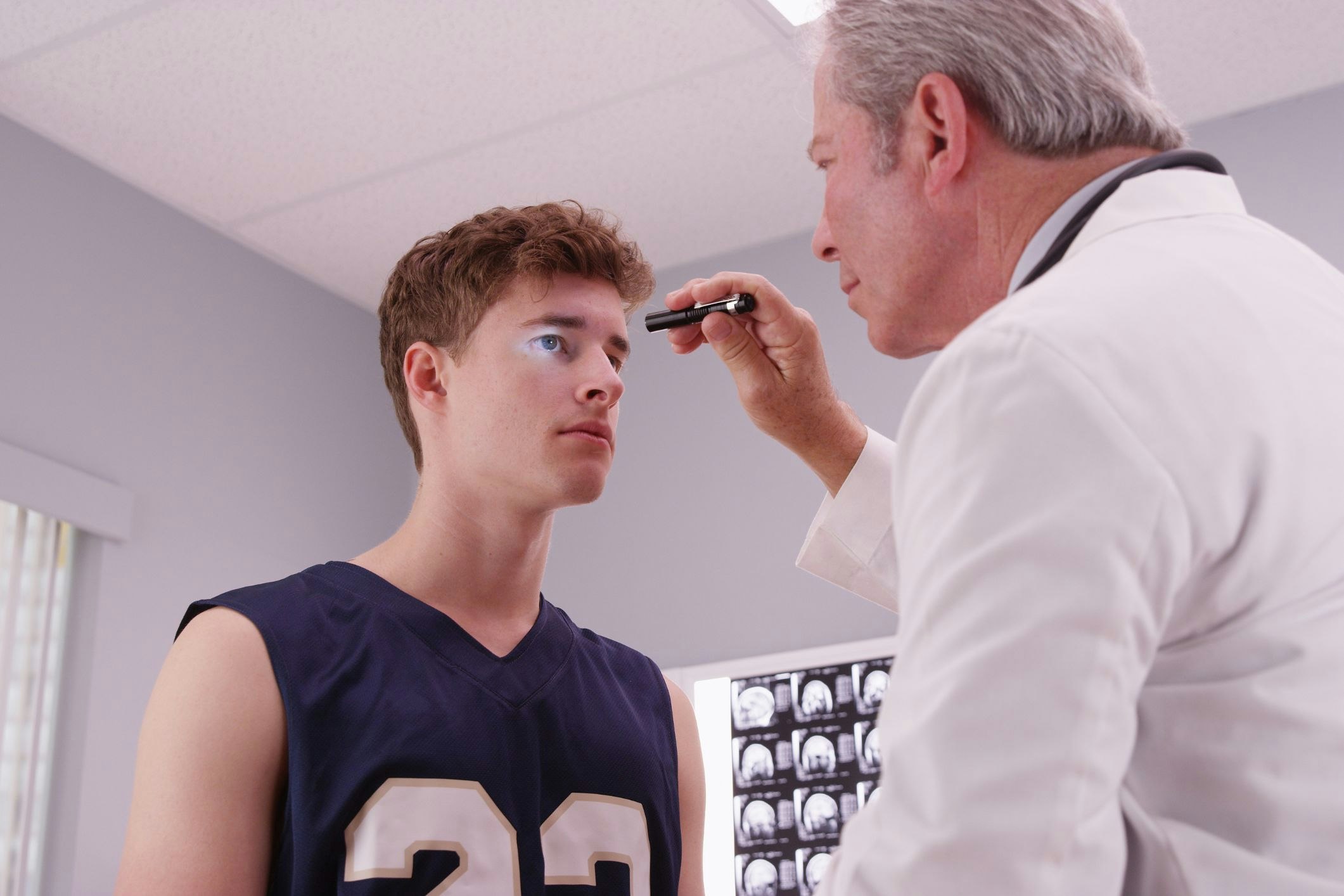New research finds brain injury relates to better sleep

Ever taken a blow to the head during footy or fell on your side and sustained a concussion? New research out of South Australia has identified the link between sleep and brain injury, leading to insight on how the head recovers.
Key points:
- Newly released findings from a South Australian study reveal that sleep appears to ‘improve’ in the eight weeks after concussion
- In particular, longer duration of sleep, better sleep efficiency, and even longer deep sleep as the recovery progresses were all cited as signs of healing
- The study aims to test other hypotheses in the future, based on this information — as signs of depression and anxiety following a brain injury will also be considered
Researcher Dr David Stevens of the Adelaide Institute for Sleep Health says the Flinders University study into traumatic brain injury is an important discovery.
“Little is known about sleep after a concussion, despite sleep arguably being the more important process to allow the brain to function optimally,” says Dr Stevens.
The results of this small-scale study are a testament to the importance of prior research in animals, showing that improving sleep supports recovery from brain injury, and therefore should be explored and monitored closely.
“We hypothesise sleep can be a key indicator of the brain trying to repair/recover from the concussion.”
Before the study, researchers were aware of the link between deep sleep and neural plasticity, along with activity in the glymphatic system which removes amyloid-β and τ-proteins. Both the amyloid and proteins were tied to Chronic Traumatic Encephalopathy (CTE). CTE is a progressive and potentially deadly brain disease commonly related to or caused by repeated traumatic brain injuries — namely, concussions.
The new study and its findings are based on information collected from athletes who have previously had acute concussions. Following the baseline data, follow-up information was gathered eight weeks after the injury (known as the sub-acute stage). Researchers were able to determine that participants who sustained a concussion were able to sleep better than the general population. Additionally, findings suggest that sleep appears to further improve in the sub-acute stage, in contrast to the days following an injury.
“We speculate that the improvement in sleep was an attempt by the brain to heal itself,” Dr Stevens says.
“More research in a larger population is needed to explore this hypothesis, and investigate other neurophysiological and neurocognitive measures to examine whether changes in sleep during recovery from concussion results in changes to other aspects of the head trauma.”
“I am not only advocating for improved research in a range of areas in concussion, but also for players, clubs and organisations to stop treating concussion like it’s a scratch or a ‘corky,’ but, rather, [sic] a clinical issue that has potential ramifications worse than any dislocation or fracture.”